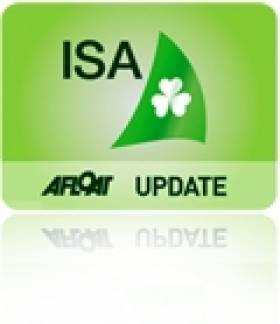Displaying items by tag: Nicholas
O'Leary Not Defending 'All Ireland' Title
The only hat-trick winner of the Irish Sailing Association's (ISA) All Ireland Sailing Championships, Royal Cork's Nicholas O'Leary will not be defending the title when the 2011 event is sailed in two weeks time. Names of the 16 invitees, drawn from dinghy and keelboat classes, were published today. Among those attending is O'Leary's father Anthony representing Cruiser Class Zero and his Crosshaven club mate, the 2011 1720 National Champion Mark Mansfield, a past winner of the event.
Nicholas O'Leary is one of 12 invitees – either national champions or top ranked sailors – who are unavailable to attend. Only 16 of 28 invitees had accepted the invitation by last week's entry deadline.
The Waterways Ireland sponsored event takes place at Lough Derg Yacht Club which was originally scheduled for three days but is now running on the 8th and 9th of October only. The event is raced in J80's.
The 16 invitees are as follows:
|
Name |
Club |
Class |
|
Adrian Allen |
Ballyholme Yacht Club |
Multihull |
|
Roger Bannon |
National Yacht Club |
Mermaid |
|
Noel Butler |
ISA |
Fireball |
|
Alan Claffey |
Royal St. George Yacht Club |
Ruffian |
|
Ben Duncan |
Howth Yacht Club |
Laser SB3 |
|
Brian Goggin |
Kinsale Yacht Club |
ICRA '2' |
|
David Gorman |
National Yacht Club |
Flying Fifteen |
|
Alan Henry |
Sutton Dinghy Club |
IDRA 14 |
|
George Kenefick |
Royal Cork Yacht Club |
ICRA '3' |
|
Mark Mansfield |
Royal Cork Yacht Club |
1720 |
|
John McGuinness |
Moville Sailing Club |
GP14 |
|
Flor O'Driscoll |
Howth Yacht Club |
J24 |
|
Anthony O'Leary |
Royal Cork Yacht Club |
ICRA '0' |
|
Pat O'Neill |
Clontarf Yacht & Boat Club |
E-Boat |
|
Gordon Patterson |
Royal North Yacht Club |
Squib |
|
Ryan Seaton |
Ballyholme Yacht Club |
Olympic 49er |






























































